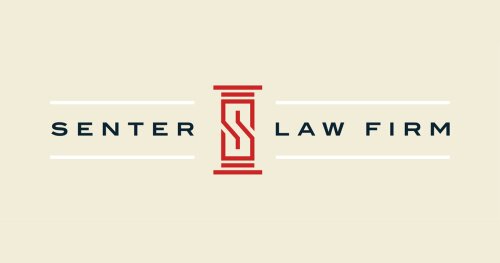Best ADR Mediation & Arbitration Lawyers in United States
Share your needs with us, get contacted by law firms.
Free. Takes 2 min.
Or refine your search by selecting a city:
List of the best lawyers in United States
About ADR Mediation & Arbitration Law in United States
Alternative Dispute Resolution (ADR) in the United States refers to a range of processes designed to settle disputes without resorting to litigation. Two primary forms of ADR are mediation and arbitration. Mediation involves a neutral third party helping disputants reach a voluntary agreement, while arbitration involves a neutral third party who hears all sides and makes a binding decision. ADR is generally faster, less formal, and often less costly than traditional court proceedings. It can cover a wide variety of disputes, including commercial, family, employment, and international issues.
Why You May Need a Lawyer
While ADR processes are designed to be more accessible than traditional court systems, there are still situations where legal help can be essential. A lawyer experienced in ADR can help you understand your rights and obligations, prepare necessary documentation, and represent your interests effectively. Common scenarios include complex contractual disputes, international arbitration, drafting enforceable arbitration clauses, and navigating power imbalances that might occur during mediation sessions. Legal advice is also crucial for enforcing or challenging an arbitration award, which can sometimes require additional legal action.
Local Laws Overview
ADR processes, particularly arbitration, are governed by both federal and state laws. The Federal Arbitration Act (FAA) provides the legal framework for arbitration and ensures its enforceability across states. State laws can vary, and they often provide specific guidance on mediation processes. For example, confidentiality rules, mediator credentials, and the role of the court in enforcing mediated agreements can differ. Understanding these local variations is crucial for effectively navigating the ADR landscape.
Frequently Asked Questions
What is the difference between mediation and arbitration?
Mediation is a collaborative process where a mediator helps the parties reach a voluntary agreement, while arbitration involves an arbitrator making a binding decision after hearing each party's case.
Is participation in ADR mandatory?
It can be, depending on the context. Some contracts require arbitration in case of disputes, and certain court systems may mandate mediation before proceeding to litigation.
Are ADR decisions legally binding?
Arbitration decisions are typically binding and enforceable in court, similar to a court order. Mediation agreements become binding when they are formalized into a contract signed by both parties.
Can I still go to court after arbitration?
Generally, arbitration is intended to be final and binding, meaning that recourse to the courts is limited, primarily to challenges related to fairness or the arbitration process itself.
What kinds of disputes are suitable for ADR?
ADR can handle various disputes, including commercial contracts, employment issues, family matters, and more. It is particularly useful when a quick and confidential resolution is desired.
How is confidentiality handled in ADR?
ADR processes are often confidential, meaning the details of the dispute and the resolution are not disclosed publicly, which can be advantageous for businesses or personal matters.
How do I initiate ADR?
ADR can be initiated by agreement between parties or as stipulated by a contract. Once agreed, a mediator or arbitrator is selected, and the process begins.
What should I look for in an arbitrator or mediator?
Choose someone with relevant experience, appropriate credentials, and a track record of handling similar disputes effectively. Neutrality and objectivity are crucial.
How long does ADR take?
The duration can vary widely based on the complexity of the case, but ADR is generally quicker than court litigation, often concluding within months rather than years.
What are the costs associated with ADR?
Costs can vary based on the arbitrator or mediator's fees, the complexity of the case, and whether legal representation is employed. It is usually less expensive than litigation.
Additional Resources
For those seeking more information or assistance, consider these resources:
- American Arbitration Association (AAA) - offers training, rules, and services for arbitration and mediation.
- Federal Mediation and Conciliation Service (FMCS) - provides mediation services for labor disputes.
- National Academy of Arbitrators (NAA) - a professional organization for arbitrators offering resources and guidelines.
- Your state's local bar association - which often has ADR sections providing resources and lawyer referrals.
Next Steps
If you need legal assistance in ADR Mediation & Arbitration, begin by identifying your specific needs and the type of dispute involved. Look for lawyers who specialize in ADR and have a track record in handling similar issues. You might also want to consult resources such as lawyer directories or bar associations for recommendations. Arrange initial consultations to assess potential lawyers' suitability and approach. Prepare documentation and information regarding your case in advance to ensure that your consultations and subsequent ADR process are productive and efficient.
Lawzana helps you find the best lawyers and law firms in United States through a curated and pre-screened list of qualified legal professionals. Our platform offers rankings and detailed profiles of attorneys and law firms, allowing you to compare based on practice areas, including ADR Mediation & Arbitration , experience, and client feedback.
Each profile includes a description of the firm's areas of practice, client reviews, team members and partners, year of establishment, spoken languages, office locations, contact information, social media presence, and any published articles or resources. Most firms on our platform speak English and are experienced in both local and international legal matters.
Get a quote from top-rated law firms in United States — quickly, securely, and without unnecessary hassle.
Disclaimer:
The information provided on this page is for general informational purposes only and does not constitute legal advice. While we strive to ensure the accuracy and relevance of the content, legal information may change over time, and interpretations of the law can vary. You should always consult with a qualified legal professional for advice specific to your situation.
We disclaim all liability for actions taken or not taken based on the content of this page. If you believe any information is incorrect or outdated, please contact us, and we will review and update it where appropriate.
Browse adr mediation & arbitration law firms by state in United States
Refine your search by selecting a state.















